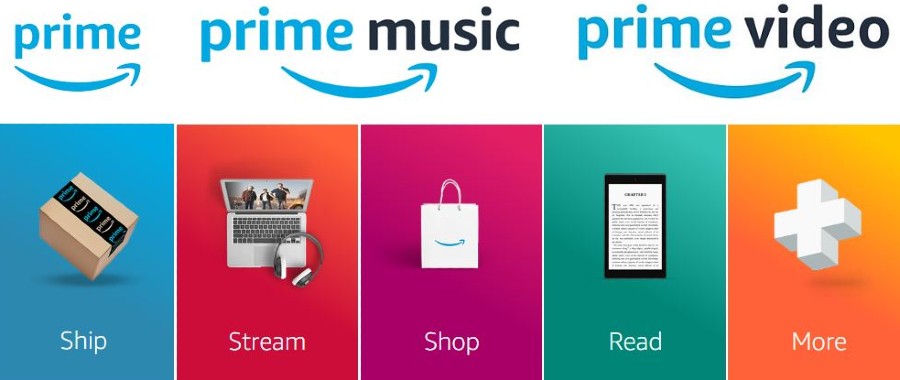In the ever-expanding world of e-commerce, Shopify has emerged as one of the most powerful and accessible platforms for entrepreneurs and businesses to Shopify create, manage, and scale online stores. Whether you’re a budding entrepreneur with a small startup or a large enterprise looking to enhance your digital presence, Shopify provides the tools to build a robust online store and sell products or services across multiple channels. In this article, we’ll dive deep into what Shopify is, its key features, and how it has revolutionized the e-commerce landscape.
What is Shopify?

Founded in 2006 by Tobias Lütke, Daniel Weinand, and Scott Lake, Shopify was initially designed to help businesses create a customized online store without requiring https://www.shopify.com/ extensive technical knowledge. Over time, the platform evolved into a comprehensive e-commerce solution that allows users to build their websites, manage products, process payments, and much more.
Today, Shopify powers over 1.7 million businesses in Shopify more than 175 countries, making it one of the leading e-commerce platforms in the world. The platform caters to a wide range of industries and offers tools for businesses of all sizes to grow their online presence, optimize their operations, and increase their sales.
Key Features of Shopify

Shopify’s success can be attributed to its broad array of features that are designed to help businesses thrive in the online space. Below are some of the https://www.shopify.com/store-login key features that make Shopify an attractive choice for e-commerce entrepreneurs.
1. Ease of Use
One of Shopify’s biggest advantages is its user-friendly interface, which allows anyone to set up and run an online store with minimal effort. Even if you Shopify have no prior experience with web design or development, Shopify makes it easy to create a professional-looking website.
- Drag-and-Drop Builder: Shopify’s store builder allows users to design their store using a drag-and-drop interface. This means you can arrange and customize elements like product images, text, and buttons without any coding knowledge.
- Themes: Shopify offers a wide range of free and paid themes, giving you access to professionally designed templates that are optimized for various industries and businesses. These themes are mobile-responsive, ensuring that your store looks great on any device.
2. Product Management
Shopify simplifies the process of adding, organizing, and managing products in your store. Whether you sell physical goods, digital products, or services, Shopify’s product management features allow you to keep everything organized.
- Product Listings: Adding new products is straightforward, with options to include product titles, descriptions, images, prices, and variations (like sizes or colors).
- Inventory Tracking: Shopify’s inventory management system helps businesses track stock levels, preventing overselling and ensuring that customers have an accurate view of what’s available.
- Bulk Product Import/Export: If you’re migrating from another platform or updating large quantities of products, Shopify’s bulk import/export feature makes managing large product catalogs more efficient.
3. Payment Processing
Shopify provides a seamless and secure way to handle payments. The platform integrates with a variety of payment gateways, allowing businesses to accept credit card payments, digital wallets, and other methods.
- Shopify Payments: Shopify offers its own payment gateway, Shopify Payments, which eliminates the need for third-party processors and reduces transaction fees for users. It supports multiple currencies and popular payment methods such as Visa, Mastercard, Apple Pay, and Google Pay.
- Third-Party Payment Gateways: For businesses that prefer other payment providers, Shopify integrates with over 100 third-party gateways, including PayPal, Stripe, and Authorize.net.
4. Multi-Channel Selling
In today’s digital landscape, businesses need to reach customers across multiple channels. Shopify makes it easy to sell on various platforms beyond your website.
- Social Media Integration: Shopify allows you to connect your store with popular social media platforms like Instagram, Facebook, and Pinterest. This integration enables businesses to tag products in posts, allowing customers to make purchases directly from social media channels.
- Marketplaces: Shopify also supports integration with online marketplaces like Amazon and eBay, giving businesses access to a wider audience.
- Point of Sale (POS): If you have a brick-and-mortar store, Shopify’s POS system allows you to seamlessly integrate your in-store and online operations. This feature lets you manage sales, inventory, and customer data across both channels in real time.
5. Marketing and SEO Tools
Driving traffic to your online store is essential for success, and Shopify offers a variety of marketing and search engine optimization (SEO) tools to help you attract more customers.
- SEO Optimization: Shopify’s platform is optimized for search engines, making it easier for your store and products to rank higher in search results. You can customize title tags, meta descriptions, URLs, and alt text for images to improve your store’s visibility.
- Email Marketing: Shopify integrates with several email marketing platforms, allowing businesses to create and send targeted campaigns to their customer base. Shopify also has its own email marketing tool, Shopify Email, which lets users design, send, and track campaigns directly from their dashboard.
- Discounts and Promotions: Shopify’s marketing tools include the ability to create discounts, offer free shipping, and set up promotions. These tools help businesses incentivize customers and boost sales during special events or holidays.
6. Analytics and Reporting
Understanding your store’s performance is Shopify crucial for making informed business decisions. Shopify provides detailed analytics and reporting features to help you track sales, monitor traffic, and measure the effectiveness of your marketing efforts.
- Sales Reports: Shopify’s sales reports give you insights into your total sales, top-selling products, and customer behavior. This data helps you identify trends and make adjustments to your marketing and inventory strategies.
- Customer Insights: With Shopify’s customer reports, you can analyze your customer demographics, purchase history, and lifetime value. This information helps you tailor your marketing efforts and improve customer retention.
- Google Analytics Integration: For more advanced data tracking, Shopify integrates with Google Analytics, giving you a deeper understanding of your website traffic and user behavior.
7. App Store
Shopify’s App Store offers thousands of apps that extend the functionality of your store. Whether you need tools for marketing, customer support, shipping, or inventory management, there’s an app for virtually every business need.
- Free and Paid Apps: Shopify’s app marketplace features a mix of free and paid apps that can help automate tasks, enhance the customer experience, and optimize your store’s performance.
- Custom Development: For businesses with unique needs, Shopify offers the ability to hire Shopify experts or developers to create custom apps or integrations tailored to your store.
Shopify Pricing Plans

Shopify offers several pricing plans to accommodate different business sizes and needs:
- Shopify Lite: This plan is ideal for those https://www.shopify.com/tools/business-name-generator who want to add e-commerce functionality to an existing website or sell on social media channels. It costs $9 per month and provides basic tools for selling online without building a full Shopify store.
- Basic Shopify: Priced at $29 per month, this plan is suitable for new businesses looking to create an online store with full e-commerce functionality.
- Shopify: For $79 per month, this plan offers additional features like professional reports and lower transaction fees, making it a good option for growing businesses.
- Advanced Shopify: At $299 per month, this Shopify plan includes advanced reporting and shipping options, catering to larger businesses with more complex needs.
- Shopify Plus: This enterprise-level solution is designed for high-volume merchants and starts at $2,000 per month. Shopify Plus offers advanced customization, dedicated support, and a range of powerful features for scaling businesses.
Shopify’s Impact on E-Commerce

Shopify has had a profound impact on the e-commerce world by democratizing online retail. By providing an affordable, user-friendly platform with a wide array of features, https://www.shopify.com/blog/motivational-quotes Shopify has enabled countless entrepreneurs to launch successful online businesses without the need for deep technical expertise or large capital investments.
Furthermore, Shopify’s constant innovation—such as integrating augmented reality (AR) for product visualization and offering AI-driven business tools—continues to push the boundaries of what e-commerce platforms can do. Its ecosystem of developers, designers, and apps ensures that businesses can continually enhance their stores and stay competitive in an ever-changing market.
Conclusion
In conclusion, Shopify stands as one of the most comprehensive e-commerce platforms available today. Its ease of use, versatility, and powerful features have made it a go-to choice for millions of businesses worldwide. Whether you’re just starting out or looking to scale your enterprise, Shopify offers the tools and support you need to succeed in the online marketplace. As e-commerce continues to grow, Shopify remains at the forefront, empowering entrepreneurs to reach new heights.

